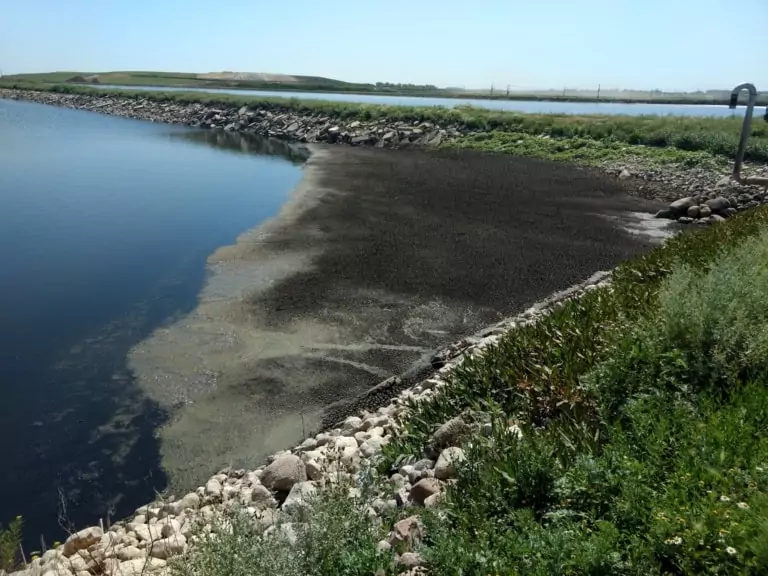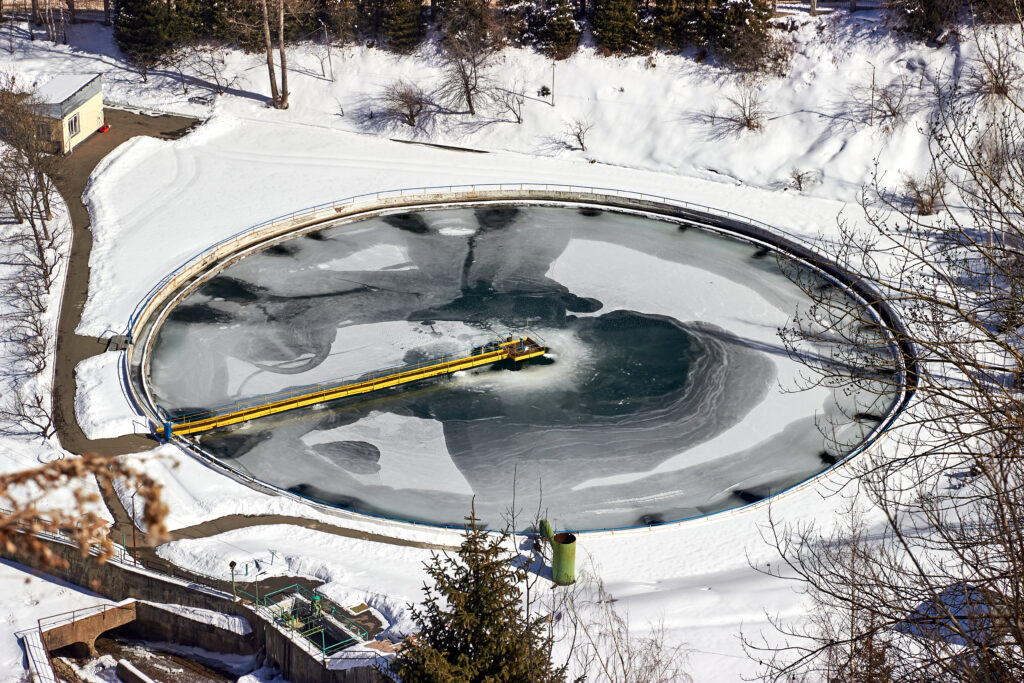Keep Up to Date with MDG
MDG News and Updates

Inflammaging: How Probiotics Can Help
Healthy aging is an essential element of wellness for many consumers—in fact, in a NutraIngredients survey, 50% of people ranked healthy aging as an important goal. Unfortunately, there are a multitude of factors that may impede the healthy aging process. Recent research has shown there is a link between aging and inflammation, which some are calling “inflammaging”. Inflammaging refers to the low-grade inflammation that naturally occurs throughout the body as we get older, often due to changes in the gut microbiome. However, supplementation of anti-inflammatory probiotics could be a way to help ease the effects of inflammaging. Here’s what you need to know.1 The Connection Between Aging and the Gut Microbiome The human gut microbiome is complex, comprised of thousands of bacterial species. This diversity is key to keeping it healthy. However, as we age, gut microbiome diversity tends to diminish, particularly the populations of beneficial organisms that help maintain gut health. A decreasing population of good gut bacteria could lead to higher susceptibility to issues like leaky gut; this, in turn, could increase the persistent, systemic inflammation that is a hallmark of inflammaging.2,3 Because of the relationship between aging and inflammation, the two create a negative cycle. Age-related decline […]

Bringing MDG’s Innovative Wastewater Solutions to WEFTEC 2025
Microbial Discovery Group (MDG) is excited to announce that we will be attending WEFTEC 2025, the largest annual water quality event in North America. This will be our third year as exhibitors, and we’re looking forward to sharing our expertise with current and potential partners. The exhibition portion of the event will take place September 29–October 1 in Chicago, Illinois, at the McCormick Place Convention Center. Come visit us in the North Building at Booth #6033! About the Event WEFTEC is an annual technical exhibition and conference focusing on the water industry, organized by the Water Environment Federation. Attendees will have plenty of opportunities to network, attend educational sessions, and discover new developments in the water sector. Our Impact at WEFTEC As leaders in biological wastewater treatment solutions, we see WEFTEC as the perfect place to share those solutions with a global audience. For our third year of exhibiting, we are placing emphasis on the innovative, strategic approach we offer our distribution partners. We help our customers achieve measurable, repeatable success with bioaugmentation through our expert people, high-quality products, and cutting-edge programs. Visit MDG at WEFTEC 2025 We invite you to stop by our booth and say hello! Our experts […]

Get Ready for WEFTEC: Watch Our Wastewater Webinar
We’re excited to see you in Chicago, IL, at WEFTEC 2025! If you’d like to set up a meeting with one of our experts ahead of time, contact us today to get on the schedule. Before you head out, take a peek at some of the expertise we have to offer by watching our webinar “Reducing H2S in Wastewater Systems Through Bioaugmentation”, presented by one of our technical experts, Josiah Menako.

The Changing Landscape of the Human Health Market in 2025
If you’re a probiotic supplier or manufacturer in the United States, you may be feeling uncertain about the state of the human health market. Unpredictable tariff adjustments and shifting regulatory guidelines on topics like self-affirmed GRAS status are just a couple of the challenges affecting U.S.-based probiotic companies today. While conditions are always subject to change, it’s useful to have a baseline awareness of current market happenings so you’re prepared to navigate the road ahead—here’s what you need to know. Potential Elimination of Self-Affirmed GRAS Status If you’re not already familiar, there are currently two pathways to GRAS (generally recognized as safe) status for probiotic ingredients: self-affirmation and FDA review. If a company’s ingredients have self-affirmed GRAS status, the ingredients have been reviewed by internal experts, but the FDA has not been notified of their use in food, beverage, or probiotic/supplement products. An FDA-reviewed GRAS affirmation, on the other hand, occurs if the FDA is alerted via a GRAS notice and subsequently approves the ingredient.1 In early March 2025, the Department of Health and Human Services (HHS) released a statement sharing Secretary Robert F. Kennedy Jr.’s directive for the organization to “enhance the FDA’s oversight of ingredients considered to be […]

The Interplay Between Leaky Gut, Inflammation, and Probiotic Solutions
Leaky gut is an issue often caused by inflammation of intestinal tissue cells. Sometimes, complications from this problem, commonly referred to as leaky gut syndrome, can lead to even more inflammation throughout the body, creating a negative cycle and potentially leading to a host of adverse health outcomes. In order to address these issues and improve your customers’ overall health, it’s essential to understand the link between inflammation and leaky gut. Luckily, probiotics with anti-inflammatory properties could offer a great solution—here’s how. What is leaky gut? Leaky gut refers to increased permeability of the intestinal lining. This lining is comprised of intestinal tissue cells and acts as a barrier between the gut and the rest of the body, allowing nutrients and other beneficial material to pass into the bloodstream while preventing the escape of undesirable bacteria, food particles, and toxins. However, if these cells become inflamed, intestinal permeability increases, reducing the lining’s ability to prevent potentially harmful substances from entering the bloodstream. As these substances leak out, they trigger a greater immune response, leading to increased, sustained inflammation.1,2 How are leaky gut and inflammation connected? These two issues are closely tied: Leaky gut is caused by intestinal inflammation, and the […]

MDG at SIMB 2025: Your Trusted Microbial Contract Manufacturer
Join us at the 2025 Society for Industrial Microbiology and Biotechnology (SIMB) Annual Meeting! We’re exhibiting July 27–30 at the Hyatt Regency in San Francisco. Visit us at Booth #20 to speak with an expert in person and learn more about our capabilities for microbial contract fermentation. About the Event The SIMB Annual Meeting provides an opportunity for professionals working in industrial microbiology and biotechnology to learn about new research and advancements in their fields through guest speaker presentations, technical sessions, and networking on the exhibition floor. The session topics and exhibiting companies all fall under at least one of five main SIMB categories: biocatalysis, cell culture and fermentation, environmental microbiology, metabolic engineering, and natural products.1 Our Impact at SIMB 2025 This year on the SIMB exhibition floor, you’ll get to learn about our expansion into our third production facility. With two new fermentation tanks and additional drying space, we’ve greatly expanded our capacity, which will benefit both current customers and future partners. We have the capability to rapidly scale up microbial organisms for commercial use. Our focus on strain purity and adherence to the highest quality standards ensure that our partners receive a final product that will fit their […]

Treat More, Spend Less: Addressing Your Customers’ Wastewater Challenges with Biotifx® 40B
At MDG, we offer specialized products for many wastewater treatment applications. However, we know that sometimes your customers need to combat a wide variety of issues with just one product. Enter Biotifx® 40B, an all-in-one, easy-to-use, Bacillus-based solution! Take a closer look at how 40B works to address common problems in the wastewater treatment industry, and learn how you can get in on the action by becoming one of our distribution partners. Advantages of Biotifx® 40B The concentrated nature of Biotifx® 40B is where its power lies. At 10 times the strength of our standard Biotifx® products (and up to 40 times the strength of some of our competitors!), it’s one of the strongest ready-to-use bioaugmentation products on the market. This means a little bit of 40B goes a long way, so you can use less to treat more, increasing ROI and saving both you and your customers money in the long run. Biotifx® 40B also contains a complex blend of micronutrients to maximize microbial community performance. Including this complex array of micronutrients alongside our highly effective Bacillus strains allows 40B to provide increased benefits to the wastewater system. Biotifx® 40B Works on… Sludge Excessive sludge can accumulate in wastewater […]

How to Help Your Wastewater Customers Prepare for Winter
The changing of the seasons can have a pronounced effect on wastewater systems, particularly when the weather gets cold. Lower temperatures correspond to a decrease in microbial activity, which slows the treatment process. If you’re looking for a solution for your wastewater customers, we offer a product specifically designed to perform well in colder water temperatures: Biotifx® FRZ. How does Biotifx® FRZ work? The Bacillus strains in FRZ are scientifically selected for their ability to maintain their biological activity in colder water, specifically temperatures at or below 59°F/15°C. This means that treatment doesn’t slow down as much during winter, keeping wastewater facilities functioning more efficiently and avoiding system upsets caused by seasonal changes. In our in-house labs, we put our solution to the test against competing cold-weather biological products. Overall, Biotifx® FRZ performance stayed consistently high across both colder and warmer temperatures. Biological Activity Comparison As shown in Figure 1, FRZ maintained 92% of its biological activity during a drop in temperature from 77°F/25°C to 39°F/4°C. In comparison, the two competitor products we tested maintained only 1% and 5% of their biological activity throughout the same decrease in temperature. Figure 1: Comparing biological activity at 39°F/4°C to that […]

Bacillus: The Smarter Solution for RV Sewage System Treatment
Summer is here, which means your customers might be bringing out their RVs for the first trip of the season. However, even on a carefree camping adventure, RVs need to be maintained, particularly their sewage systems. If you’re looking to add an RV tank treatment to your product line, or if you’re searching for ways to improve the RV treatment products you already offer, a Bacillus-based solution from MDG is a great place to start. With our high-quality strains and a wide variety of ingredient formats, you can formulate effective RV treatment products that address your customers’ concerns and take your business to new heights! What makes Bacillus effective for treating RV sewage systems? Wastewater from RV bathrooms and kitchens is stored in tanks until it is manually pumped out. While these tanks are designed to hold significant amounts of organic solids, too much buildup can decrease the effectiveness of the system. This can result in odors, backups, and other costly issues, including difficulty with routine pump-outs. While some traditional chemical products tackle odors and buildup on the surface, these treatments often don’t get to the root of the problem—the actual odor-causing compounds and organic material contributing to buildup. Bacillus-based […]

Upcoming Webinar—Know Before You Grow: Microbial Contract Manufacturing with MDG
Microbial contract manufacturing doesn’t have to be confusing when you work with the right partner. In our upcoming webinar, we will explore the first steps of contract manufacturing at MDG, giving you the inside scoop on what you should know before you grow. Hear from Shannon Losing (Director of Quality and Regulatory) and Stephanie Weber (Research Manager of Process Development) as they discuss pre-screening questions you will encounter as a potential client and our process development workflow. Stick around until the end for a chance to ask your questions live! Join us on Thursday, June 12, at 1:00 PM CDT as our experts present “Know Before You Grow: Microbial Contract Manufacturing with MDG. Register below.